In 2008, the average Canadian produced over 1,031 kilograms of waste – with 777 kilograms of this going to landfills or incinerators (Macmillan, 2015). That is about five times the weight of an average panda bear!
Vancouver implemented its Greenest City 2020 Action Plan in 2008 in order to change alarming statistics such as this one. Keep reading to see how us five UBC students are contributing to this plan…
Welcome, and thanks for stopping by! We are a group of UBC Land and Food Systems students excited to be collaborating with City Studio and the City of Vancouver on the Put Waste in its Place: The Zero Waste Station Challenge project. This initiative is part of a larger 2020 action plan set out by the City of Vancouver to be the greenest city and reduce the amount of solid waste entering landfills by 50% of 2008 levels. Meet our group members:
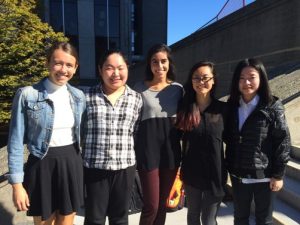
Sandra, Cindy, Simran, Megan, Kylin
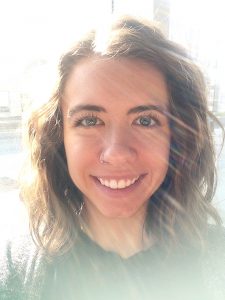
I’m Sandra, a fourth year dietetics student, varsity track athlete, and zero waste enthusiast. When I’m not studying or training, I’m usually doing yoga at the Hot Box, experimenting with recipes, or thrift shopping. The City of Vancouver’s zero waste station challenge intrigued me because I embarked on my own zero waste journey two years ago. It has been quite the adventure full of many zero waste ‘fails’ but it’s all part of the lifestyle I love living. I’m excited to explore the reasons why people don’t separate their waste and to propose new ideas for future zero waste efforts by the City of Vancouver.
Hi! My name’s Megan and I’m a third year Food, Nutrition and Health major. 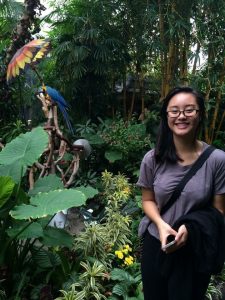 I’ve been a pescatarian for three and a half years, an active community volunteer for the past seven, and as you can probably guess, I am incredibly passionate about healthy living and our planet’s overall sustainability. If I’m not running around campus to attend lectures or in between transit stops to get myself to/from school, I spend the majority of my time with my family (two dogs, a hamster, and a goldfish included) and friends.
I’ve been a pescatarian for three and a half years, an active community volunteer for the past seven, and as you can probably guess, I am incredibly passionate about healthy living and our planet’s overall sustainability. If I’m not running around campus to attend lectures or in between transit stops to get myself to/from school, I spend the majority of my time with my family (two dogs, a hamster, and a goldfish included) and friends.
Over the course of my adolescence, my passion for living a happy, healthy, and sustainable life has developed into a constant goal and endless learning journey of mine. As I continue through my undergrad, I discover more and more ideas that, if applicable, are slowly integrated into my daily routines. The ‘Put Waste in its Place’ project sparks the curiosity I’ve had for awhile about the concept of zero waste, so I can’t wait to see what this initiative has to offer us all term.
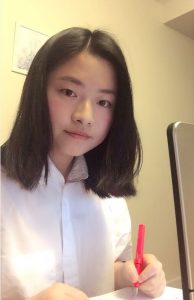 Hi. I am Kylin Zhou and I am now a junior in the UBC nutritional science major. As for myself, I have great passion towards having a sustainable and healthy life style. I plan to acquire more knowledge throughout my studies as a nutritional science major in order to contribute to my home country. Since my home country is still a developing country, most people care more about satisfying material needs instead of maintaining personal health or environmental sustainability. As such, the environment problem in China is deteriorating. One of the contributing factors is probably the poor recycling system as most people don’t know the importance of waste diversion. That’s why the “Put Waste in its Place” project really caught my eyes. I am really curious about how Vancouver’s waste system is going to tackle the “zero waste challenge”. I am looking forward to starting the project and discovering new inventions and ideas throughout the project for future environment improvement.
Hi. I am Kylin Zhou and I am now a junior in the UBC nutritional science major. As for myself, I have great passion towards having a sustainable and healthy life style. I plan to acquire more knowledge throughout my studies as a nutritional science major in order to contribute to my home country. Since my home country is still a developing country, most people care more about satisfying material needs instead of maintaining personal health or environmental sustainability. As such, the environment problem in China is deteriorating. One of the contributing factors is probably the poor recycling system as most people don’t know the importance of waste diversion. That’s why the “Put Waste in its Place” project really caught my eyes. I am really curious about how Vancouver’s waste system is going to tackle the “zero waste challenge”. I am looking forward to starting the project and discovering new inventions and ideas throughout the project for future environment improvement.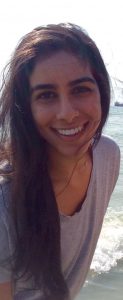
Hi! I’m Simran, a third year student in the Food, Nutrition and Health program within the Faculty of Land and Food Systems. I am very interested in learning about nutrition and aim to live a balanced and active lifestyle through participating in a variety of sports as well as maintaining a healthy diet. Aside from sports, travelling and learning about new cultures is one of my greatest passions. By learning about food in a global context and exploring diverse food systems, I am able to bridge these two passions of mine in a very engaging way. I have thoroughly enjoyed all of the classes I have taken within my faculty so far at UBC – they have opened my eyes to new ways of understanding and discussing our food system. I look forward to starting our community based project to become more involved with our local food system and contribute to bettering current initiatives in the waste management field!
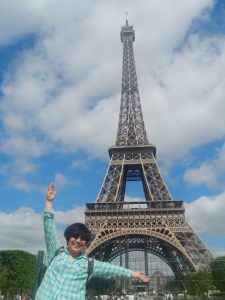 Hello, world! I’m Cindy Chen, a fourth year Food Science student. I love baking, making my own jams, and watching baby animal videos. A little over 3 year ago, I challenged myself to start living without using plastics for a month. That was surprisingly difficult but it also made me realize that if I really want to make a change and be more environmentally friendly, I CAN DO IT! Fast forward three years, I expanded that challenge to a larger one: minimal waste. To my eyes, “waste” is not really “waste”. A milk carton could be a seedling bed. A plastic bottle could be a fruit fly trap. A pair of torn jeans could be an apron and several coin bags. I think that people tend to put the waste label on all the things that they don’t currently need and forget to stop and really think about what waste really means. I hope by participating in the “Zero Waste” project, I can help my community or anybody to better understand what is and what is not waste. If this project can make people start asking themselves “oh, wait, is this box really garbage?”, I think that means we really succeeded.
Hello, world! I’m Cindy Chen, a fourth year Food Science student. I love baking, making my own jams, and watching baby animal videos. A little over 3 year ago, I challenged myself to start living without using plastics for a month. That was surprisingly difficult but it also made me realize that if I really want to make a change and be more environmentally friendly, I CAN DO IT! Fast forward three years, I expanded that challenge to a larger one: minimal waste. To my eyes, “waste” is not really “waste”. A milk carton could be a seedling bed. A plastic bottle could be a fruit fly trap. A pair of torn jeans could be an apron and several coin bags. I think that people tend to put the waste label on all the things that they don’t currently need and forget to stop and really think about what waste really means. I hope by participating in the “Zero Waste” project, I can help my community or anybody to better understand what is and what is not waste. If this project can make people start asking themselves “oh, wait, is this box really garbage?”, I think that means we really succeeded.
We are looking forward to engaging with our community in the area of waste management – a critical but often overlooked step in our daily consumption of food. What we do with our waste matters! We believe all individuals need to contribute to improving our local community food system and this includes the sustainability aspect of our system. How we treat our environment has a ripple effect into many areas of society and needs to be addressed.
What will we be doing?
Throughout the term, we will be collaborating with two individuals in our community on the Put Waste in its Place project. Jeanie Morton, a representative from City Studio – a company that works to engage students and other community members with the City of Vancouver through unique and inventive projects – and Paul Gagnon, the Corporate Zero Waste Officer with the City of Vancouver, on the Put Waste in its Place project. Specifically, our role involves observation and data collection of the impacts of new signage on waste bins in Roundhouse Community Centre. The purpose of this project is to help Jeanie and Paul decide whether or not it is beneficial to our zero waste goals to implement the new signage across all community centres and various public areas. To do this, we will see if the new signage improves waste diversion rates in this facility. We will also be talking with community members and asking for their thoughts on our current waste management system.
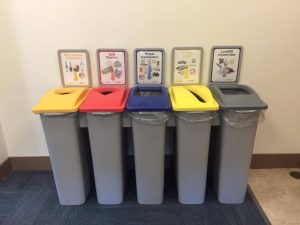
City of Vancouver’s current waste sorting bins and signage
From the first meeting with our community partners, we learned that the City of Vancouver’s goal to reduce waste going to landfills by 50% by 2020 has been an ongoing trial and error process, as it is heavily reliant on the general public’s adoption of various initiatives. Although the movement to reduce waste was implemented by city leaders, it has since evolved into more of a two-way communication system between city representatives and citizens. The City of Vancouver and City Studio are listening and responding to the actions of the public to improve the city’s initiatives. Instead of creating his own idea of what could work and making enough new sorting signs for every community centre, Paul is asking us to go out into the community first – to observe and talk to the public, and find out what they want. This concept of discovering what a community needs before putting in all the time and energy to assist is prevalent in Ernesto Sirolli’s TED Talk. In order for advancements to occur in the field of waste management, it is essential that city leaders understand, observe, and react to the needs and concerns of the public. This is what we have come to learn as Asset-Based Community Development (ABCD). As discussed by Cunningham and Mathie (2010), ABCD is based on the idea that focusing on the strengths and assets of a community rather than its needs and issues is more likely to result in progressive change.
In this case, our community has shown interest in wanting to reduce waste and this is where we come in. We are setting out to identify what is working or may not be working with the zero waste stations by listening to their concerns and observing their actions. The value of simply listening often becomes lost in our fast-paced society but we are going to take a step back and see what the community has to say!
Why did we choose this project?
We are all, in some way, environment enthusiasts. While we may have different starting points in our understanding about and personal actions taken towards the zero waste initiative, we’re all hoping to make a difference in Vancouver’s current waste management system through the Put Waste in its Place project. The differences in our amount of knowledge on the subject and unique life experiences will only aid us by bringing more diverse perspectives to our project. Considering Vancouver’s attempt at broadening the public’s access to zero waste stations, we are curious as to why many individuals still consciously choose to throw their waste away without sorting it first. We believe that people should be fully responsible for what they consume, from first bite to final partings/disposal. For these reasons, we are excited to discover potential strategies to work towards Vancouver’s zero waste goal throughout the term.
We are interested in knowing…
- How does the City of Vancouver manage waste?
- Is their possibility for improvement to the current waste recycling system?
- Does the general public sort waste correctly? If not, what are the barriers that prevent this (e.g. time, convenience, other people’s behavior)?
- How can the City of Vancouver make waste sorting easier and more convenient for the general public?
- What challenges is the City of Vancouver facing in terms of implementing zero waste campaigns?
- What differences can educating young children make in the city’s zero waste efforts?
We hope to…
- Learn about the process that the City of Vancouver undertakes when trying to implement new zero waste initiatives.
- Gain experience working with city leaders.
- Explore various forms of data collection/observation and decide on the best approach.
- Discover new interventions and improvements that can benefit the city’s waste management system.
- Deepen our understanding of community development projects through collected observations/data and interactions with community members (e.g. why an initiative works/doesn’t work).
- Take the ABCD (Asset-Based Community Development) approach from Mathie and Cunningham’s paper and focus less on what Vancouver is doing wrong or what needs to be fixed and more on how far Vancouver has come and what strengths are already in place.
- Build off of the waste sorting skills community members already have.
- Take advantage of the local community centres and the power they have in helping Vancouver divert it’s waste from the landfill to the recycling centre or compost.
What’s next?
We are setting off to do our first observation in the community in a couple weeks and we can’t wait to share our findings! Check back to see what we discover!
References
Mathie, A., & Cunningham, G. (2003). From clients to citizens: Asset-based Community Development as a strategy for community-driven development. Development in Practice, 13(5), 474–486.
McMillan, M. (2015). Analysis. Retrieved October 01, 2016, from http://www.statcan.gc.ca/pub/16f0023x/2010001/part-partie1-eng.htm
Phillips, K. W. (2014). How Diversity Makes Us Smarter. Retrieved October 01, 2016, from http://www.scientificamerican.com/article/how-diversity-makes-us-smarter/
Sirolli, E. (2012). Want to help someone? Shut up and listen! [Video file]. Retrieved from http://www.ted.com/talks/ernesto_sirolli_want_to_help_someone_shut_up_and_listen
1 Thought.